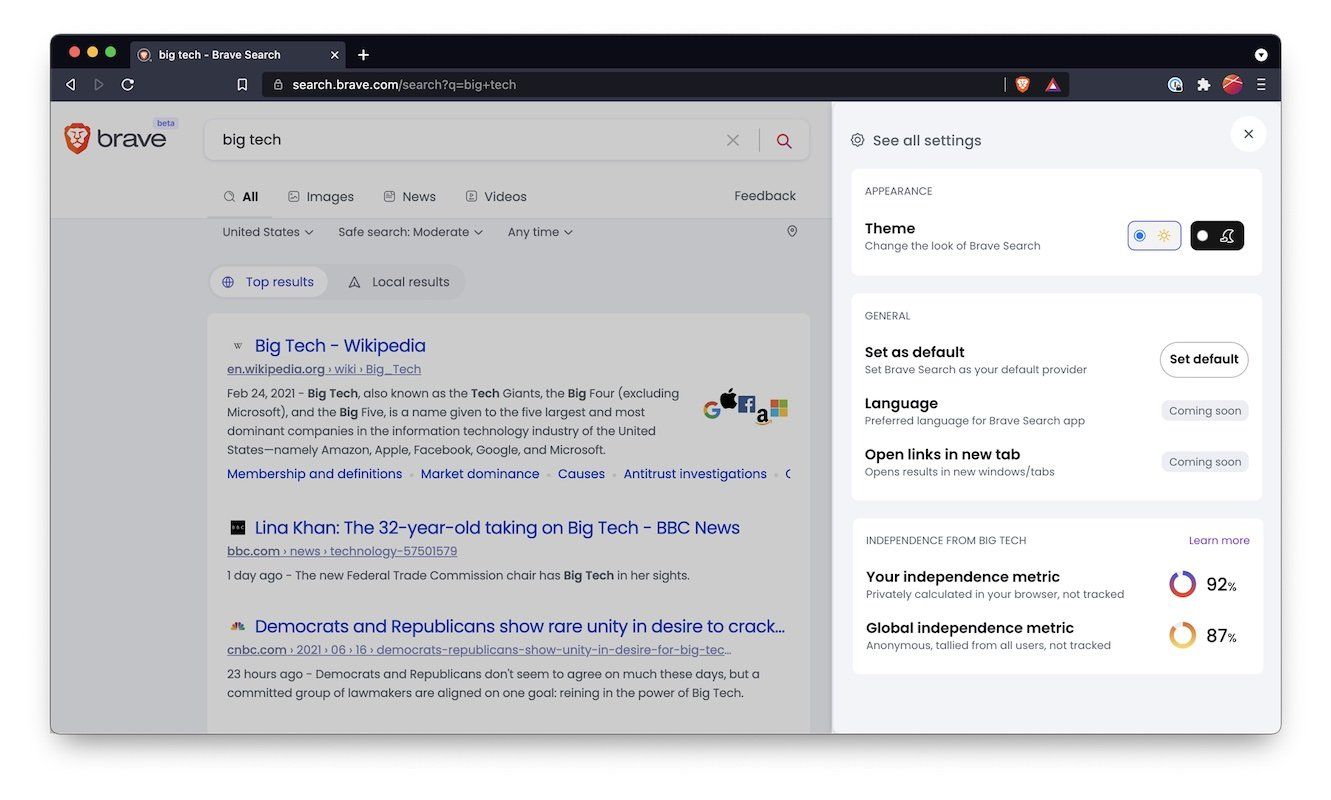Brave launches Brave Search beta for no tracking alternative to Google
The privacy-focused browser Brave is adding a new zero tracking alternative to Google to its line up of user-first software services.

Brave, maker of privacy-focused Chromium-based Brave browser, has launched a new Brave Search engine at search.brave.com, offering a zero tracking alternative to Google.
For those who don't know Brave, the company – founded by Javascript creator and former CEO of Mozilla Brendan Eich and CTO Brian Bondy – has been offering its browser since 2015, with its full 1.0 release in 2019. The browser is a personal favourite, being built on the popular Chromium engine (so most every Chrome extension runs here too) while applying deep privacy enhancements to ensure you are not being tracked as you move across the web.
With the launch of Brave Search, the company continues a journey toward a more complete ability to detach a user's time online from Google's tendrils (yes, there are Google tendrils here on Byteside too, but if you use Brave you're already blocking them). It already offers an integrated private news reader in the browser, a new advertising system that is based on zero user tracking that allows for support of Brave and publishers without the tracking, and a firewall / VPN integration into the browser on mobile platforms.
Undoubtedly, Brave Search is a work in progress and won't be as complete or as laser targeted as Google. But we need more options like this to start building the engine that will make them better and better over time. But here's the tenets it aims to adhere to as part of offering the engine:
- Privacy: no tracking or profiling of users.
- User-first: the user comes first, not the advertising and data industries.
- Independence: Brave has its own search index for answering common queries privately without reliance on other providers.
- Choice: soon, options for ad-free paid search and ad-supported search.
- Transparency: no secret methods or algorithms to bias results, and soon, community-curated open ranking models to ensure diversity and prevent algorithmic biases and outright censorship.
- Seamlessness: best-in-class integration between the browser and search without compromising privacy, from personalization to instant results as the user types.
- Openness: Brave Search will soon be available to power other search engines.
If you're already using Brave, you can choose Brave Search as your default or you can hit it from any other browser via search.brave.com.
Byteside Newsletter
Join the newsletter to receive the latest updates in your inbox.



